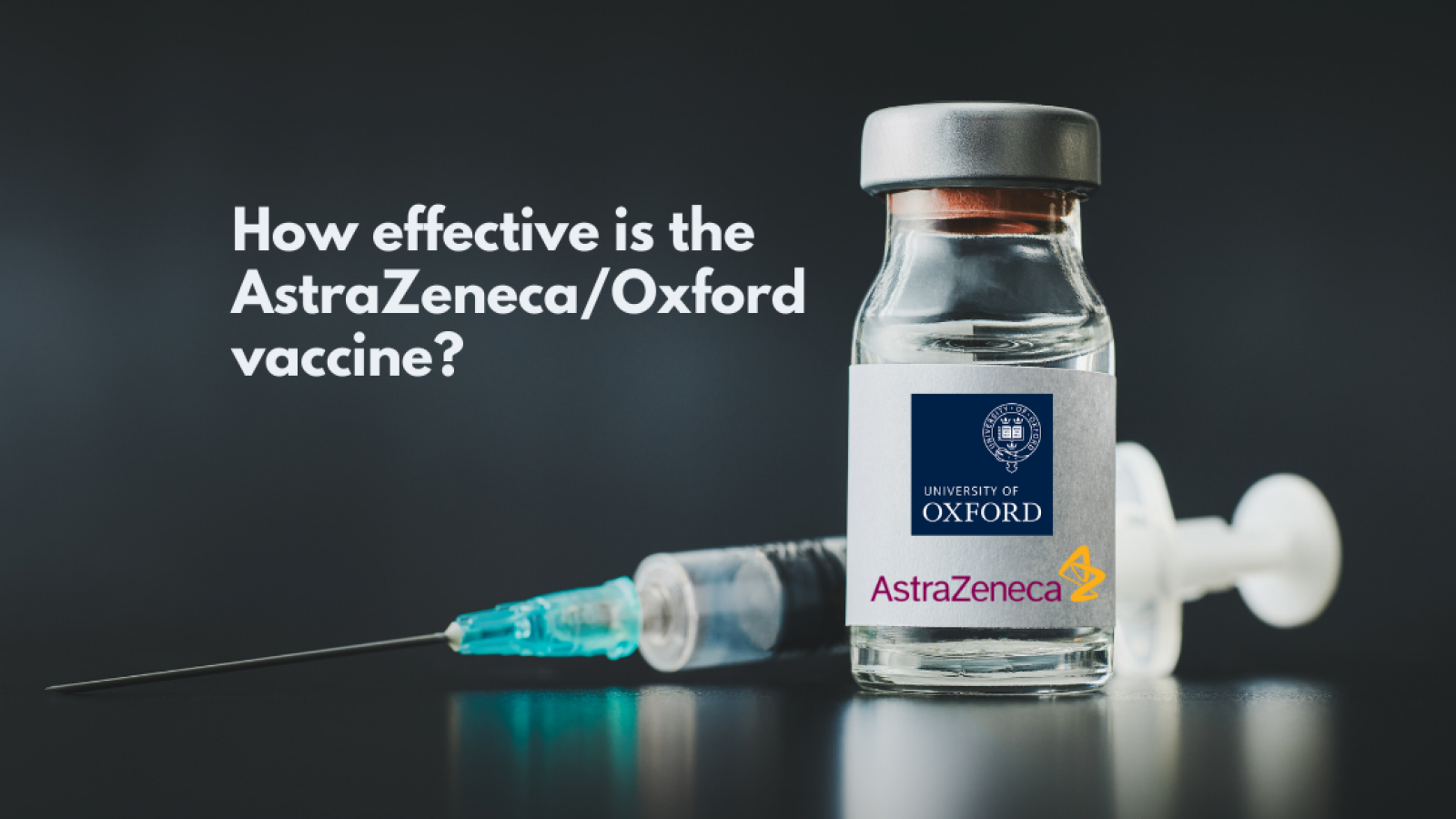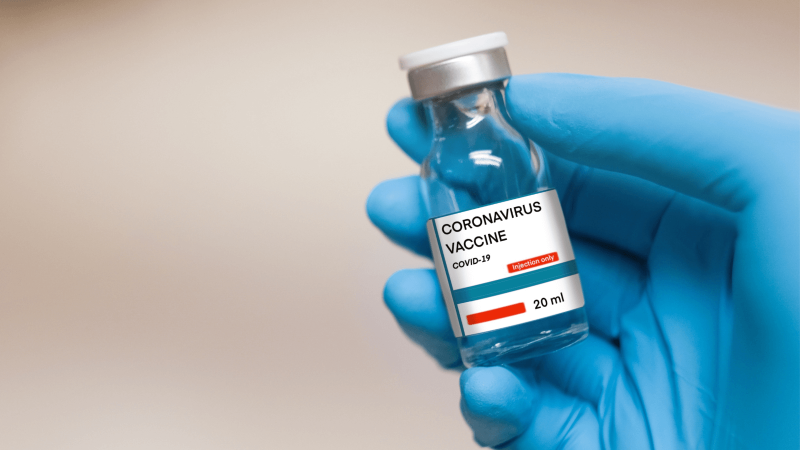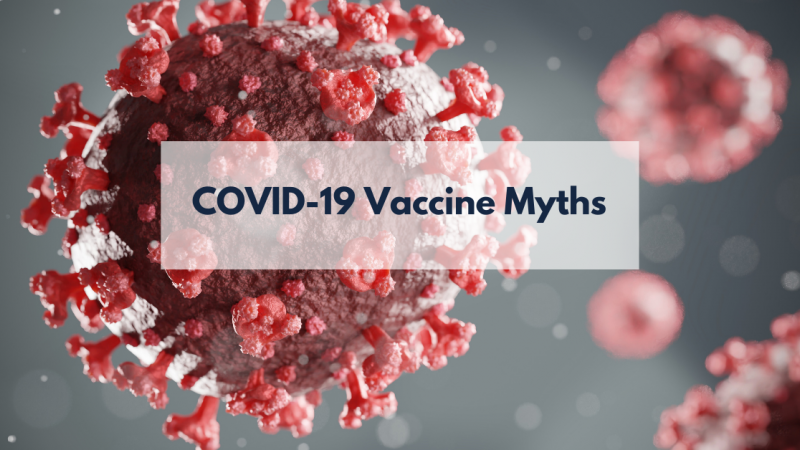How does the AstraZeneca/Oxford COVID-19 vaccine work?
The AstraZeneca/Oxford vaccine is a viral vector vaccine. This means that the vaccine doesn’t contain the SARS-CoV-2 coronavirus, but is based on a completely different, harmless virus which has been altered in the laboratory to contain part of the coronavirus DNA.
Researchers used a weakened chimpanzee adenovirus as the viral vector. This virus normally causes the common cold in chimpanzees. The virus was changed to contain a segment of SARS-CoV-2 DNA.
When the vaccine is injected, our cells react to the SARS-CoV-2 genetic material and start to develop the antibodies and other immune cells that fight COVID-19, even though the actual virus isn’t present.
This means that if you are exposed to the virus in the future your immune system is primed to fight it off and prevent you from getting sick with COVID-19. Two doses of the vaccine are necessary to achieve that immune memory, although a single dose will protect you for several weeks, or even months.
What does the vaccine contain?
Vaccines are mainly made of water, which carries the viral vector which causes the immune response. In addition, a viral vector vaccine can contain very small amounts of preservatives and stabilisers, to maintain quality and ensure the vaccine is safe to be transported and stored. The preservatives prevent unwanted microbial contamination, and the stabilisers stop the components separating or sticking to the vial during transportation and storage.
How do I know the vaccine is safe?
Before any vaccine can be given to the population it must go through rigorous testing. Like all medicines, vaccines undergo extensive animal trials and human trials. This vaccine was tested on mice and monkeys before people.
In the UK, the results of all these trials are assessed by the Medicines and Healthcare products Regulatory Agency (MHRA). The MHRA has thoroughly assessed the AstraZeneca/Oxford vaccine clinical trial data after following the volunteers who had the vaccine for between two to six months. Only after that is it considered safe for general use. The MHRA will also continue to carry out independent safety monitoring after this or any vaccine is approved.
No medicine can ever be completely risk free or 100% effective. However, strong licensing processes and safety tests ensure that the health benefits of medicines greatly outweigh any risks. As vaccines are given to healthy people, these regulatory measures are even stricter, meaning that the level of ‘acceptable risk’ for vaccines is much lower than it would be for other medicines.
Viral vector vaccines like the AstraZeneca/Oxford COVID-19 vaccine are backed by many years of research. With a previous history of many years of clinical trials in humans, the technology had already been developed, deemed safe and approved to fight Ebola.
Because the research team at Oxford University were already working on pandemic preparedness, using this vaccine technology to fight emerging diseases. Once the genetic sequence of SARSCoV-2 was uncovered, the technology was quickly adapted to target this new virus.
Hasn’t the speed of developing vaccines for COVID-19 compromised safety?
The idea that it took 10 years to trial a vaccine is misleading. Most of the time, it's a lot of nothing - grant applications, getting approval to do the trial, negotiating with manufacturers, recruiting enough people to take part. That can take years. https://www.bbc.co.uk/news/health-55041371
The COVID-19 vaccines have been developed at a much faster pace for several reasons.
Vaccine development is normally a long and expensive process because of delays caused by applying for funding, obtaining ethical approval, recruiting trial volunteers, negotiating with manufacturers and scaling up production. In the emergency state of the COVID-19 pandemic the scientists, doctors, ethics approval boards, manufacturers and regulatory agencies came together to work harder and faster.
Normally it takes years to raise money to develop a vaccine and at each stage you would have to stop and apply for more funding to carry out the next stage. In the current emergency, many governments and funding bodies joined forces to remove those financial obstacles. This has allowed animal trials, clinical trials and manufacturing to run in parallel to speed up the process.
Scientists have also been sharing knowledge openly and working together across different countries which has allowed them to work more efficiently. Additionally, tens of thousands of keen volunteers rapidly put themselves forward for the clinical trials.
Previous scientific advances in vaccine technology greatly aided the speed of development of this vaccine and could be rapidly deployed once the genetic sequence of SARS-CoV-2 became known.
Altogether, thanks to global collaboration, ample funding, and knowledge gained from decades of vaccine research, scientists have achieved what once typically took years of work in just 10 short months.
So in no way has the speed of development compromised the safety of the COVID-19 vaccines. All the standard safety procedures have been followed and the rigorous regulatory processes have fully completed, as for any other vaccine or medicine.
How effective is the AstraZeneca/Oxford vaccine?
For the AstraZeneca/Oxford vaccine, 11,700 people took part in the clinical trials. Researchers found that the vaccine was 62% effective in preventing people from getting sick with COVID-19, 14 days after a second dose. Importantly, no one who received the vaccine suffered from severe COVID-19.
A more recent study found a single dose of the Oxford vaccine offered 76% protection for three months, and this went up to 82% after the second dose. As a point of comparison, the flu vaccine is about 50% effective.
It is important to note that your immune system needs time to respond to the vaccine. It may take up to 14 days after the second shot for the vaccine to be fully effective. In the meantime, it is possible to become ill with COVID-19.
Although vaccination is extremely effective for the majority of the population, the effectiveness or protective capacity of a vaccine will differ depending on individual immune variation. No medicine can ever be 100% effective.
How long does the immunity last after vaccination?
It is not yet known how long immunity to COVID-19 from vaccines will last. Clinical trials for COVID-19 vaccines have been continuing for many months and so far, results show that immunity is present in vaccinated individuals for the duration of these trials.
We won’t know the answer until we have watched the outcome of this vaccination for some years to come. .
Does the AstraZeneca/Oxford vaccine work against new variants?
So far, clinical trials are showing that the AstraZeneca/Oxford vaccine induces antibodies that are able to respond to a variety of mutations.
The WHO Strategic Advisory Group of Experts on Immunization (SAGE) currently recommends the use of the AstraZeneca/Oxford vaccine according to the WHO Prioritization Roadmap, even if virus variants are present in a country.
Why are some countries limiting their use of the AstraZeneca/Oxford vaccine?
South Africa has paused the use of the AstraZeneca/Oxford vaccine and Germany, Austria and France are using the vaccine but are only offering it to 18-64 year olds, because there is limited data on how well it protects the over-65s. However, AstraZeneca says its trial data suggests it works among over 65s.
Earlier studies show older people, as well as younger people, appear to have an equally strong immune response to the vaccine and recent results from countries using the vaccine appear to show very good results in over-65s. The European Medicines Agency approved the vaccine in January for use in all age groups, including older adults.
Is there a situation when I shouldn’t be vaccinated with the AstraZeneca/Oxford vaccine?
The vaccine should not be given to people who have a history of serious allergic reaction to any ingredients in the vaccine, but this is very rare.
Each COVID-19 vaccine will be recommended for use in defined groups of people depending on who was included in the clinical trials and found to safely tolerate it.
The vaccine has not been tested on pregnant or breastfeeding women or children under 18 so the vaccine will not be routinely offered to them. However, there is no evidence that the vaccine will be unsafe in these groups. More data from clinical trials is simply needed for safe use. In the meantime, vaccination will be considered on an individual basis if the risk of exposure to SARS-CoV-2 is high and cannot be avoided or there is an underlying health condition that puts them at very high risk of serious complications of COVID-19.
Which vaccine will I get?
In the UK, recommendations on which groups get the vaccine are made by the Joint Committee on Vaccination and Immunology. You will not be given a choice about which vaccine you get but in the UK, it will be one of the vaccines currently approved for use against COVID-19.
Read more from UAR about RNA vaccines: a new tool against COVID-19 and the top 10 COVID-19 vaccine myths.
Last edited: 29 July 2022 09:47




